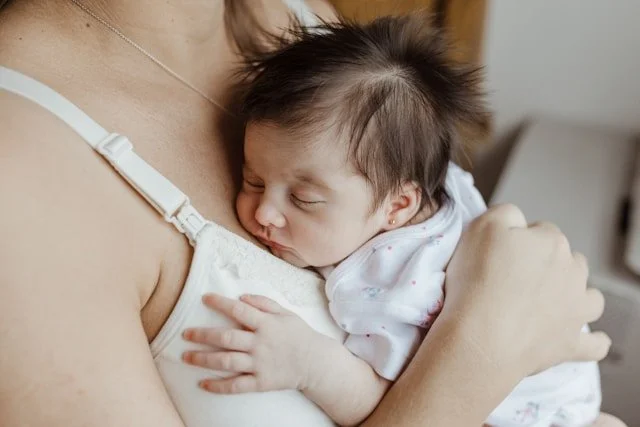Why Postpartum Anxiety Is Often Overlooked in New Mothers
It might come as a surprise to you to learn that at least 1 in 5 new mothers struggles with postpartum anxiety. The “baby blues” are well-known, but not enough attention is paid to the stress caused by the reality of just how vulnerable your precious baby is. In addition, wow, your life has changed, huh?
You can plan in advance, but nothing fully prepares a new mom for the hormones, emotions, worry, and life changes. When these add up to become all-consuming and overwhelming, it’s quite possible that postpartum anxiety is to blame.
What Exactly Is Postpartum Anxiety?
At least 20 percent of new mothers find themselves experiencing pervasive worrying during the year after childbirth. Such a scenario could be deemed postpartum anxiety if it presents with consistent signs and symptoms like:
A disproportionate sense of progressively irrational fears about the well-being of your child.
You check on them obsessively, endure intrusive thoughts that default to worst-case scenarios, and refuse to be separated from them.
You feel out of control and thus go to extremes in an attempt to regain full control.
The worrying feels like it will never stop, so you live in a state of high alert.
Also, physical signs will typically be present, e.g., sleep problems, digestive disturbances, body aches with no obvious causes, and heart palpitations.
Having your first baby is indeed stressful. However, postpartum anxiety is unique in how it can derail your attempts at basic daily functioning. It’s important to not let anyone downplay its impact.
Possible Causes of Postpartum Anxiety
Why would this happen? While each person and situation is discrete, there are two major causes to consider:
When a woman is pregnant, her hormones will undergo a slow, dramatic shift. However, after giving birth, these hormones rapidly return to their original levels. The almost inevitable result is emotional dysregulation.
Secondly, becoming a mother for the first time is an accomplishment that’s fraught with potential bumps in the road. You’re expected to take care of a vulnerable newborn while operating on very little sleep, and everyone you’ve ever met seems to be reaching out to talk about it. Meanwhile, you may be confused by changes in how your body looks and feels. Some increase in anxiety is virtually inevitable.
How Long Can Postpartum Anxiety Last?
No two cases are the same. In fact, some new mothers can experience postpartum anxiety symptoms while they’re still pregnant or not until a month after childbirth. What matters most is how quickly you identify the potential problem and reach out for professional help. A skilled therapist, along with a loving support system, can make all the difference in the world.
How Do You Tell Postpartum Anxiety From Postpartum Depression?
At first glance, this may sound obvious. How can you mistake anxiety for depression? Well, in the middle of pregnancy and giving birth, emotions are ricocheting like a pinball machine. It’s very difficult for anyone — including the mother and her therapist — to immediately discern causes and effects. Plus, symptoms like this can overlap:
Having trouble feeling joyful about the birth
Sleep issues
Doubts about your ability to care for a child
A desire to isolate yourself
In either case, you may hear some people dismiss your symptoms. “She’ll get used to being a mom,” they might say. They might mean well, but do not let yourself get overlooked. Do your homework, but be sure to get a professional opinion about anything that seems unclear.
You Are Not Alone
Postpartum anxiety needs your full attention. If you feel you’re not being heard, don't hesitate to reach out. Anxiety therapy can help you feel like yourself again.

